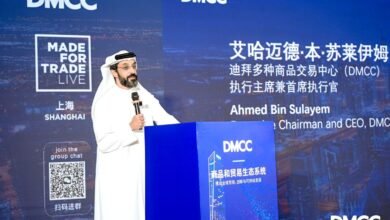BRICS Cloud City Forum Wraps Up in Moscow

▼ Summary
– The third BRICS Urban Future Forum in Moscow focused on robotics, AI, and the technological development of urban infrastructure, attracting over 13,000 attendees from 42 countries.
– Experts discussed the evolution of smart cities, with Ayesha Bin Bishr outlining a shift from simple digitalization to human-centered transformation where technology aims to increase happiness and resilience.
– Dubai’s innovation strategy was highlighted, including the creation of a regulatory “sandbox” that provides tools and relaxed rules to support innovators and new technologies.
– NEOM’s futurist, Dr. Kate Barker, presented the city as a laboratory where AI will manage resources and act as a personal companion for residents, raising questions about ethical and transparent governance.
– The forum included an award ceremony where Moscow won for human-centered robotics, and robots themselves participated in sessions, such as the cleaning robot Pixel and a humanoid robot moderator.
The recent BRICS Cloud City Forum in Moscow successfully brought together global leaders to explore the technological evolution of urban environments. Held for its third iteration on September 17-18, 2025, the event attracted over 13,000 participants from 42 countries, solidifying its status as a premier gathering for discussing the future of cities. This year’s central themes revolved around the transformative impact of robotics and artificial intelligence on metropolitan infrastructure, digitalization strategies, and the societal implications of a rapidly approaching digital future.
A significant international presence was noted, with 29 delegations arriving from 21 countries, including strong representation from the UAE, Qatar, Saudi Arabia, and other nations across Europe, South America, and Africa. The extensive business program featured more than 50 sessions, convening a diverse group of over 460 speakers. These experts included government officials, urban planners, futurists, and architects, all contributing to the dialogue on building competitive and resilient cities.
Prominent figures from the Middle East shared valuable insights. Ayesha Bin Bishr, a globally recognized smart city expert, outlined a three-phase evolution for urban development. She described the journey from basic digitalization and paperwork reduction to the current emphasis on human-centered transformation. Bin Bishr stressed that technology should serve as a tool for enhancing human happiness, reducing inequality, and building climate resilience, with citizen trust being the indispensable foundation for any successful smart city initiative.
Sultan Al Raisi, Chief Operating Officer of Sandbox Dubai, detailed Dubai’s proactive approach to fostering innovation. He explained how the city created a regulatory “sandbox” to provide innovators with necessary tools, including relaxed regulations, expert access, and direct pathways to policymakers. This initiative aims to bridge the gap between rapidly developing services and slower-moving regulatory frameworks, enabling the creation of future “platform-cities.”
The forum also featured high-profile thinkers like Yanis Varoufakis and Nobel laureate Rae Kwon Chung. A particularly compelling presentation came from Dr. Kate Barker, Chief Futurist for NEOM, who discussed the Saudi megaproject’s groundbreaking concepts. She revealed that AI is envisioned as a companion for each of NEOM’s future nine million residents, with personalized “AI twins” managing health and skill development. Dr. Barker emphasized that NEOM will act as a living laboratory, prompting a crucial global conversation about the ethics and transparency of AI in societal governance.
Alongside the expert discussions, the forum hosted the BRICS Urban Innovation Award ceremony. The awards, established in collaboration with the BRICS Chamber of Commerce and Industry and the International Telecommunication Union (ITU), honored achievements in categories like smart cities, climate action, and digital healthcare. A distinguished jury, including ITU Regional Director Natalia Mochu and BRICS Chamber Vice Chairman Sameep Shastri, selected the winners.
Moscow was awarded the top prize in the “Human-Centered Robotics” category, recognized for its leadership in deploying comprehensive robotic systems. The jury specifically highlighted the city’s driverless tram, the autonomous cleaning robot “Pixel,” and robotic construction site monitors. The award was presented by Dr. Kate Barker, linking two major visions for the urban future.
Robots were not just topics of discussion but active participants at the event. More than 35 robotic devices with various functions were showcased. A standout was the latest model of the Russian “Pixel” cleaning robot, now equipped with an enhanced vacuum system for more effectively managing debris like dust and leaves in public spaces. In a forum first, robots joined the business program directly. The humanoid robot Ardi shared its perspective on a hybrid world, while the robot Avatar, controlled in real-time by a human operator, served as a virtual moderator, offering a tangible glimpse into the integrated future of cities.
(Source: MEA Tech Watch)





